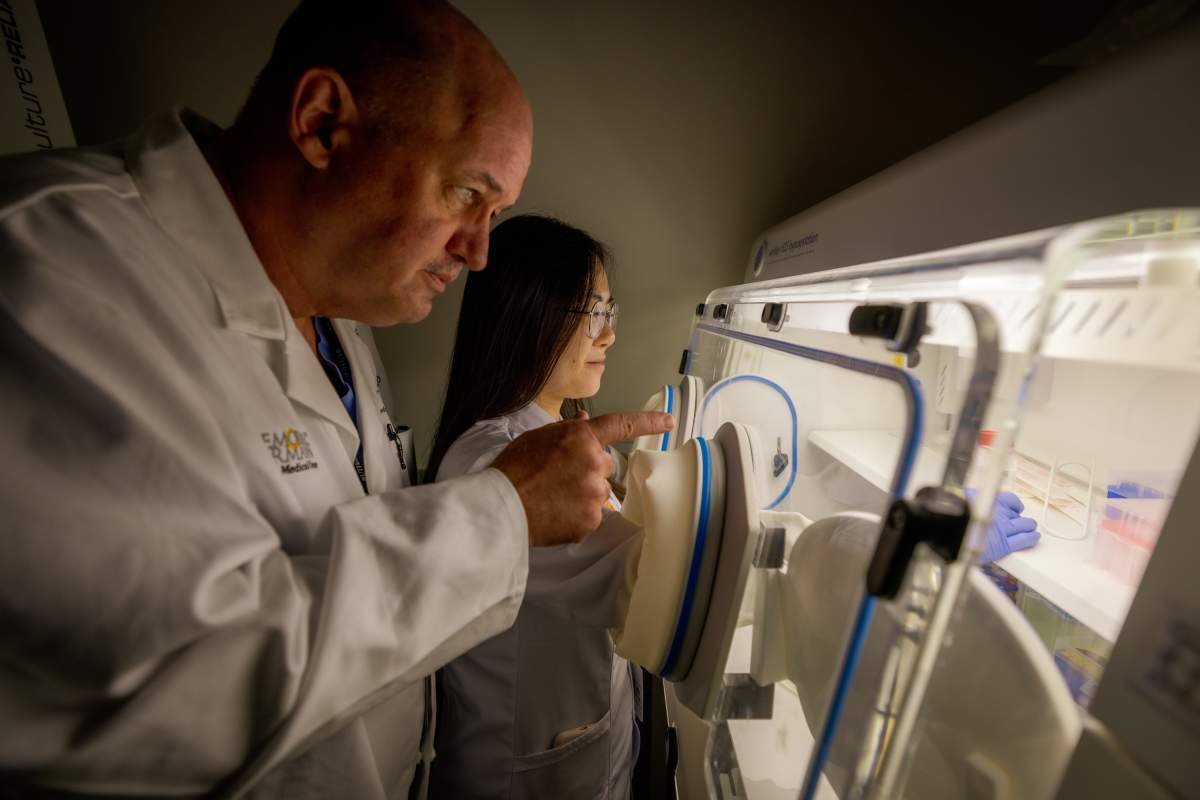Research explores novel therapies for IRI

A four-year, $2.6 million grant to study circadian rhythm and novel therapies to protect the heart during a heart attack or cardiac surgery has been awarded to UTHealth Houston by the National Heart, Lung, and Blood Institute, part of the National Institutes of Health.
Principal investigator Holger Eltzschig, MD, PhD, professor and chair, and co-investigator Wei Ruan, MD, PhD, assistant professor, from the Department of Anesthesiology, Critical Care and Pain Medicine, are studying translational, pharmacologic, and interventional strategies targeting circadian rhythm and hypoxia signaling that could help patients who are experiencing a heart attack or undergoing open-heart surgery.
Previously published research in 2012 and 2021 by Eltzschig and Ruan showed that biological rhythms affect myocardial ischemia and reperfusion injury (IRI) severity. IRI can occur in the setting of a heart attack, open-heart surgery, or during circulatory arrest, where blood flow is temporarily cut off (ischemia). During this period, the affected heart tissues suffer from inadequate oxygen supply (hypoxia). Once the obstruction is removed and blood flow resumes (reperfusion), rather than bringing immediate relief, this sudden influx of blood can lead to additional stress and damage to the heart.
The previous research further indicated that larger infarctions or higher incidences of heart failure happen in patients with morning onset heart attacks rather than later in the day. This daytime variation of myocardial injury hints at a potential interaction between circadian rhythm and hypoxia signaling.
“My laboratory has been very interested in studying IRI for over two decades,” said Eltzschig, the John P. and Kathrine G. McGovern Distinguished University Chair and the director of the Center for Perioperative Medicine. “We undertook an unbiased look to understand the molecular mechanisms of why there are differences in heart attacks in the early morning versus the late afternoon.”
In studies that led up to the current grant application, the team of scientists analyzed heart tissue samples from circadian rhythm-trained mice following heart attacks at different time points of the day. In addition, they analyzed samples derived from the left heart ventricle of patients undergoing cardiac surgery at different times of the day. They identified a highly differentially expressed gene, BMAL1, a core circadian transcription factor. The genetic deletion of BMAL1 in mouse hearts eliminates daytime variations in cardiac injury.
Natural protective molecules called hypoxia-inducible factors (HIFs) are activated due to a lack of oxygen and promote the adaptation to limited oxygen availability. In addition, HIFs limit excessive tissue inflammation in order to prevent further tissue damage. Specifically, researchers uncovered that HIF2A works together with BMAL1 in heart tissues to provide circadian-dependent heart protection.
With this grant, researchers will aim to understand how BMAL1 and HIF2A interact and their functional roles in modulating daytime variation of cardiac injury. High-resolution imaging techniques will be employed to study the molecular interactions between BMAL1 and HIF2A by Kuang-Lei Tsai, PhD, co-principal investigator and assistant professor, and postdoctoral researcher Tao Li, PhD, from the Department of Biochemistry and Molecular Biology. They will further explore the possibility of targeting the BMAL1 and HIF2A pathways as therapeutic strategies to protect the heart from injuries during surgery.
“We are using data to see if the pathways and transcriptional regulations are occurring in patients undergoing cardiac surgery in the morning or the afternoon,” Eltzschig said.
The other co-principal investigator of the study is Jochen Daniel Muehlschlegel, MD, MMSc, MBA, professor and chair of the Department of Anesthesiology and Critical Care Medicine, Johns Hopkins University. NIH Grant R01HL165748 funds this research.